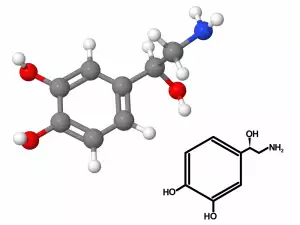A lot of people go on a diet to try to rid themselves of unpleasant excess pounds. But the constant hunger and food restrictions can play a cruel joke on us and prevent the pounds from being lost at the same time.
The main culprit for this is the "hunger hormone" ghrelin, which is secreted in the stomach and has a direct effect on a person's appetite. It is this subtle hormone that may prevent a person from ever losing weight, while at the same time having them constantly thinking about all kinds of tasty foods.
This hormone was discovered relatively late - in 1999 by a team of Japanese scientists. Deep research by American dietitians have found that ghrelin raises your body's alarm to feelings of hunger. Leptin is the other hormone which along with ghrelin affect hunger.
The human body has the ability to maintain and regulate a stable and constant condition for extended periods of time. As far as weight, the body has an abundant array of instruments which influence appetite and keep it within set boundaries in relation to the energy balance. To gain or lose pounds, the energy intake needs to increase or decrease.
This in turn affects hormone levels. If a person loses weight sharply this will make the body react in its own way and cause numerous hormonal fluctuations.
Just as ghrelin causes hunger, so is the hormone leptin responsible for satiety. Leptin and ghrelin are secreted in different parts of the body but thanks to the hypothalamus they communicate with the brain.
Functions of Ghrelin
Ghrelin is secreted by the stomach but can also be found in other areas such as the ovaries, pancreas, gastrointestinal tract, adrenal cortex.
Ghrelin regulates body weight in a short-term aspect - when its levels are high a person feels hungry and when they are well fed - levels drop. When the goal is a decrease in weight, ghrelin levels need to be low to prevent feeling hungry.
Controlling Ghrelin Levels
Eating food has a serious effect on ghrelin, while short-term and quick weight loss diets hardly ever lead to positive results in the long-term aspect. If a person wishes to lose weight they must do so at a slow rate in order to avoid the undesirable yo-yo effect that is seen in rapid weight loss plans. Binge eating also leads to hormonal stress.
Numerous experts believe that regular sleep and taking omega-3 fatty acids play a vital role in improving both ghrelin and leptin levels.
This is primarily due to the fact that omega-3 fatty acids are in general linked to a decrease in hunger. In contrast, a lack of sleep leads to a rise in ghrelin levels and lower levels of leptin, as well as disturbances in glucose metabolism. Regular physical activity is also an important factor.

Ghrelin and Diet
Ghrelin is the hormone that provokes hunger and the uncontrollable attacks on the fridge. It increases significantly in people who are on a diet. American scientists have put obese individuals with an average weight of 218 lb (99 kg) on a special diet for 6 months, after which it became evident that the level of ghrelin in them jumped by an entire 25% prior to each meal.
After the limits on the hungry volunteers were lifted, the ghrelin level dropped. This practically proved without a doubt that ghrelin is the main factor responsible for a failed diet - people can't handle the meal plan and as a result of the high ghrelin end up reaching for the fridge.
Ghrelin functions exactly the opposite as leptin, which sends signals of being full. When the body has plenty of fat reserves it produces more leptin and its levels in the blood rise - the person feels full and the opposite is also true - when a person loses weight, the level of leptin drops and the brain tells the body that it has need of more food to make up for the losses.
In obese people the main problem is that they are resistant to the action of leptin - even with higher levels of it in their blood the brain does not feel the satiety.
When on a diet the stomach produces a lot more ghrelin, sending signals of hunger to the brain. This signal is at complete odds with the whole idea of dieting and the desire for losing weight because the person experiences an agonizing hunger that is extremely difficult to resist.
In the future scientists hope to find out how to suppress ghrelin production and thus help people on a diet get rid of the inevitable thoughts of food.
To sum it all up, proper and balanced eating is the best way to maintain a normal weight.










Comments